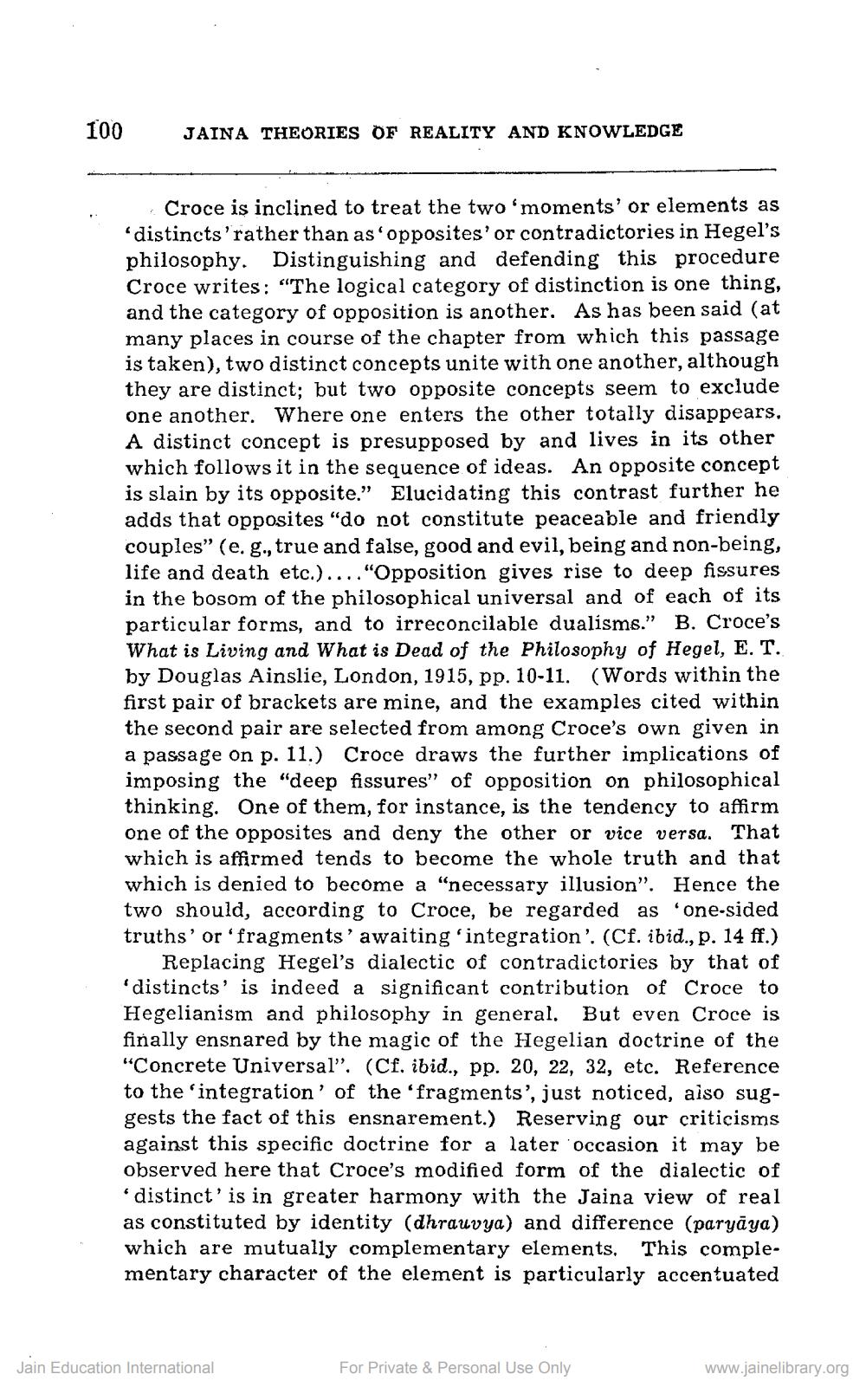________________
100
JAINA THEORIES OF REALITY AND KNOWLEDGE
Croce is inclined to treat the two 'moments' or elements as 'distincts' rather than as opposites' or contradictories in Hegel's philosophy. Distinguishing and defending this procedure Croce writes: "The logical category of distinction is one thing, and the category of opposition is another. As has been said (at many places in course of the chapter from which this passage is taken), two distinct concepts unite with one another, although they are distinct; but two opposite concepts seem to exclude one another. Where one enters the other totally disappears. A distinct concept is presupposed by and lives in its other which follows it in the sequence of ideas. An opposite concept is slain by its opposite." Elucidating this contrast further he adds that opposites "do not constitute peaceable and friendly couples" (e. g., true and false, good and evil, being and non-being, life and death etc.)...."Opposition gives rise to deep fissures in the bosom of the philosophical universal and of each of its particular forms, and to irreconcilable dualisms." B. Croce's What is Living and What is Dead of the Philosophy of Hegel, E. T.. by Douglas Ainslie, London, 1915, pp. 10-11. (Words within the first pair of brackets are mine, and the examples cited within the second pair are selected from among Croce's own given in a passage on p. 11.) Croce draws the further implications of imposing the "deep fissures" of opposition on philosophical thinking. One of them, for instance, is the tendency to affirm one of the opposites and deny the other or vice versa. That which is affirmed tends to become the whole truth and that which is denied to become a "necessary illusion". Hence the two should, according to Croce, be regarded as 'one-sided truths' or 'fragments' awaiting 'integration'. (Cf. ibid., p. 14 ff.)
Replacing Hegel's dialectic of contradictories by that of 'distincts' is indeed a significant contribution of Croce to Hegelianism and philosophy in general. But even Croce is finally ensnared by the magic of the Hegelian doctrine of the "Concrete Universal". (Cf. ibid., pp. 20, 22, 32, etc. Reference to the 'integration' of the 'fragments', just noticed, also suggests the fact of this ensnarement.) Reserving our criticisms against this specific doctrine for a later occasion it may be observed here that Croce's modified form of the dialectic of 'distinct' is in greater harmony with the Jaina view of real as constituted by identity (dhrauvya) and difference (paryāya) which are mutually complementary elements. This complementary character of the element is particularly accentuated
Jain Education International
For Private & Personal Use Only
www.jainelibrary.org




